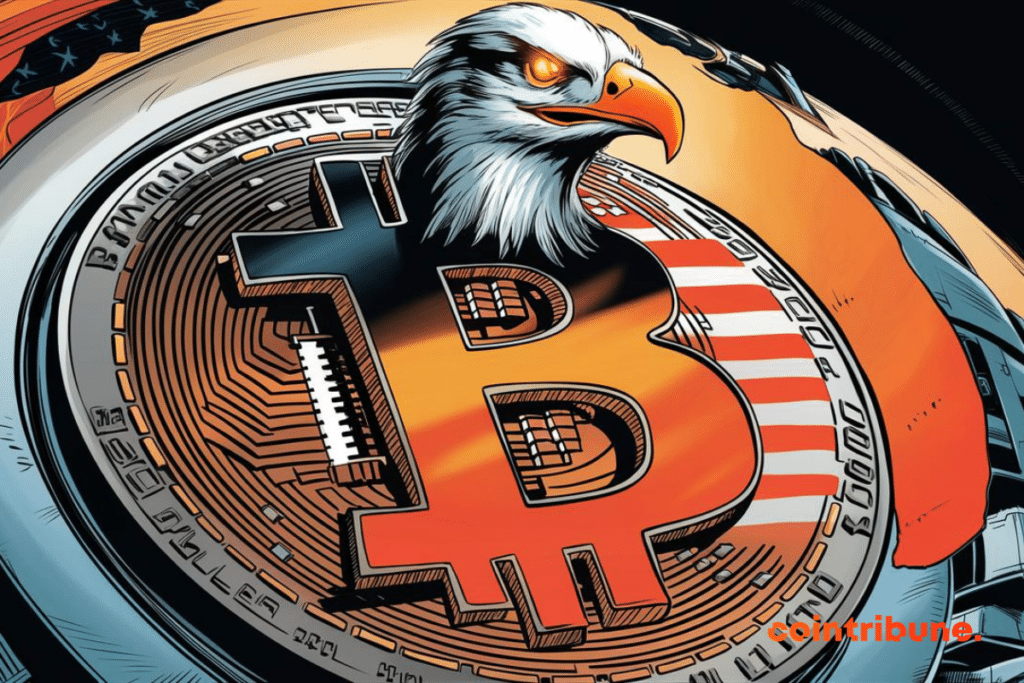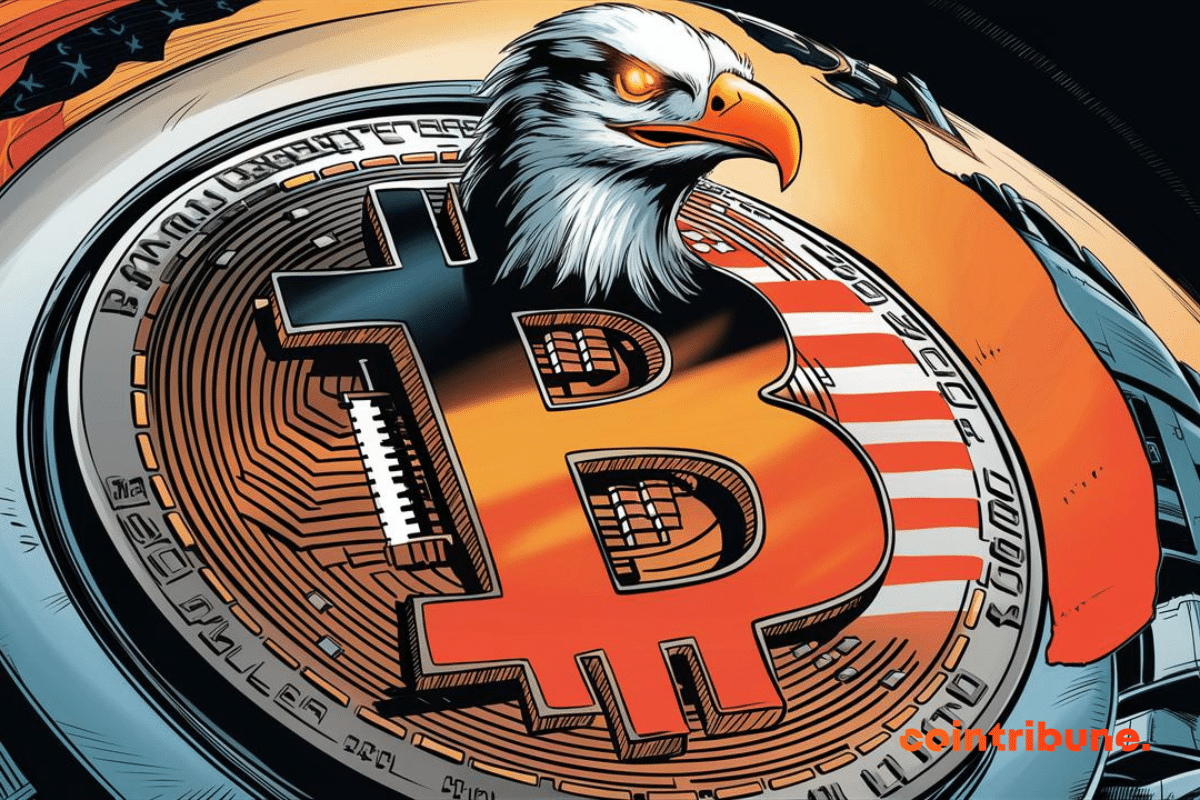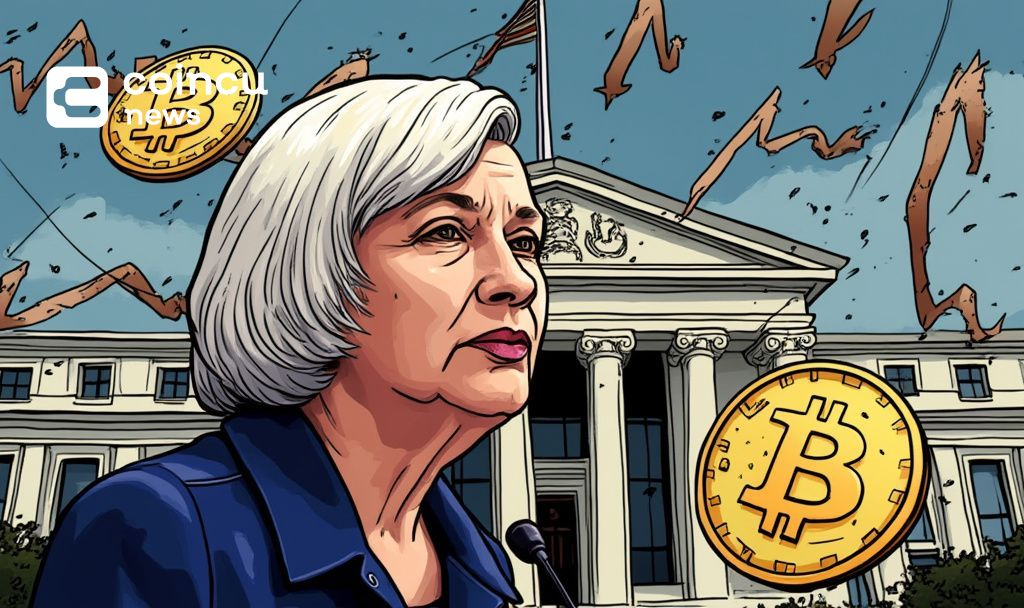 CaryptosHeadlines Media Has Launched Its Native Token CHT.
Airdrop Is Live For Everyone, Claim Instant 5000 CHT Tokens Worth Of $50 USDT.
Join the Airdrop at the official website,
CryptosHeadlinesToken.com
CaryptosHeadlines Media Has Launched Its Native Token CHT.
Airdrop Is Live For Everyone, Claim Instant 5000 CHT Tokens Worth Of $50 USDT.
Join the Airdrop at the official website,
CryptosHeadlinesToken.com
10h05
7
min read 
Bitcoin is Donald Trump’s plan B if he fails to persuade the BRICS to stop their rebellion against the dollar. Find the first part of this paper HERE.


The chessboard is moving
The geopolitical tensions strongly suggest that the question of the international monetary system is once again being questioned. The BRICS no longer want to finance the Americans’ standard of living by placing their reserves in Treasury bonds.
Two important factors must be considered to analyze this standoff:
The first, as we mentioned, is that the United States has become a debtor nation. This is observed through the current account deficit that began to widen in 1983 before becoming chronic with the rise of globalization in the 1990s.
America has paid for these imports with debt financed by the foreign exchange reserves of exporting countries (~$8 trillion). Without this artificial demand, the dollar would have depreciated until the trade balance was rebalanced. This could have helped avoid the dangerous deindustrialization of the country.
Today, American politicians and voters are very sensitive to these issues. But there is no miracle solution, apart from cutting spending and imports through tariffs.
But beware of retaliation. The essential supply chains of the United States are heavily dependent on imports. The American economy would be paralyzed and would experience monstrous inflation in the event of a total trade war. In other words, Donald Trump would do well to think twice before wielding the threat of a 100% tax on Chinese imports.
The tough Sino-Russian tango
The second relevant factor is that China today is in the position the United States found itself in immediately after World War II. It is the factory of the world. The Chinese economy would undoubtedly survive the collapse of the dollar and American inflationary recession, but this would not be beneficial for it. Less exports to the United States means less growth at home.
It is in China’s interest that the reduction of the American trade deficit is not abrupt. In any case, China has nearly halved the dollar’s share in its foreign exchange reserves over the past ten years. Furthermore, Beijing is no longer hiding its intention to buy oil from the Middle East in yuan. Will the United States accept that Gulf countries free themselves from the petrodollar to embrace the petroyuan?
The second relevant factor concerns the radical changes in the global economy since Russia’s invasion of Ukraine in February 2022. This geopolitical upheaval seriously threatens the post-Bretton Woods system.
We are already witnessing the rise of alternative currencies in the settlement of bilateral exchanges. The most notable case is that of Russia, which exclusively trades in yuan and dollars with China and several other countries. Russian Finance Minister Anton Siluanov even stated at the end of December that bitcoin will be officially used for international payments starting in 2025.
Another telling sign is that central banks are rushing to gold. This frenzy is the direct consequence of the Western decision to seize Russian foreign exchange reserves. In short, the dollar and the euro are no longer reliable, apolitical reserve currencies.
All these developments are for now rather informal, as it is unclear exactly what could replace the dollar and the SWIFT network. Some indicators suggest that the BRICS could launch a new currency, but this remains in the realm of rumor. The recent positioning of Russia and the United States in favor of bitcoin is a far more serious clue as to what will be the international currency of the third millennium.
Enter Bitcoin
If the hegemony of the dollar were to disappear, the standard of living of Americans would likely decrease by about a third. This downgrade will manifest itself through a depreciation of the dollar, causing the prices of imported goods to rise. The United States could face serious social unrest if this adjustment were to be too rapid.
Washington and Beijing have an interest in ensuring that the monetary transition occurs smoothly, but one may doubt that things will unfold this way. Despite what some free trade advocates would like to believe, trade imbalances are as old as human history and often end in war. The current geopolitical context bears witness to this.
It is urgent to trade again on an equal footing to prevent trade imbalances from degenerating into war. Gold is a good store of value, but it cannot serve as a payment network. It needs to be backed by a fiat currency. That is why bitcoin has been gaining traction lately. It is on one hand a much better store of value than gold while being at the same time a payment network, a two-in-one.
It seems that Donald Trump has understood that stateless bitcoin is the potential international currency and that accumulating it before anyone else would allow benefiting from its appreciation to erase part of the American debt towards the rest of the world (~$8 trillion).
This is a tempting fallback solution if the BRICS do not revert regarding the dollar. Especially since the group has just welcomed nine new countries. They together represent half of the world’s population and 41% of global GDP at purchasing power parity.
What seemed to be a sweet dream two years ago is rapidly becoming reality. Bitcoin can save us from a world war by allowing Americans to save face.
Don’t miss our article: “Bitcoin and the end of gold”
Maximize your Cointribune experience with our “Read to Earn” program! For every article you read, earn points and access exclusive rewards. Sign up now and start earning benefits.
Bitcoin, geopolitical, economic and energy journalist.
DISCLAIMER
The views, thoughts, and opinions expressed in this article belong solely to the author, and should not be taken as investment advice. Do your own research before taking any investment decisions.









 Russia’s Finance Minister, Anton Siluanov, discusses new experimental laws allowing Bitcoin to be used as an alternative payment instrument in international trade.
Russia’s Finance Minister, Anton Siluanov, discusses new experimental laws allowing Bitcoin to be used as an alternative payment instrument in international trade.  Senator Cynthia Lummis proposes a U.S. Strategic Bitcoin Reserve funded without new money by revaluing gold certificates to market value and exchanging them for Bitcoin.
Senator Cynthia Lummis proposes a U.S. Strategic Bitcoin Reserve funded without new money by revaluing gold certificates to market value and exchanging them for Bitcoin. 


